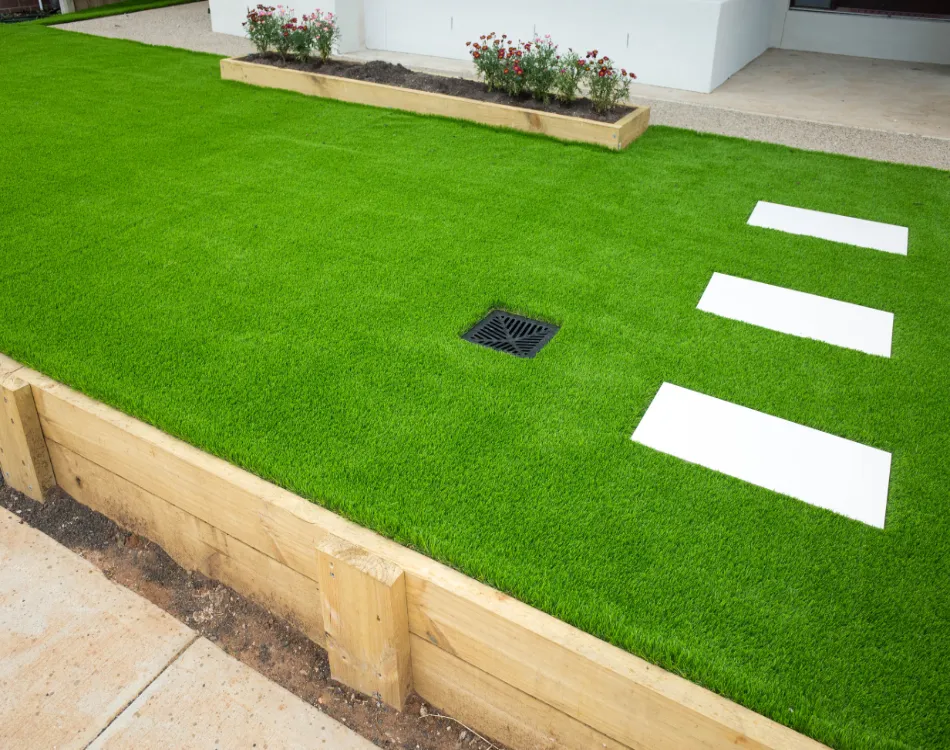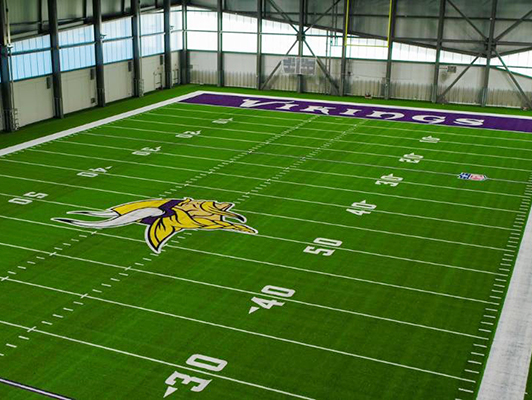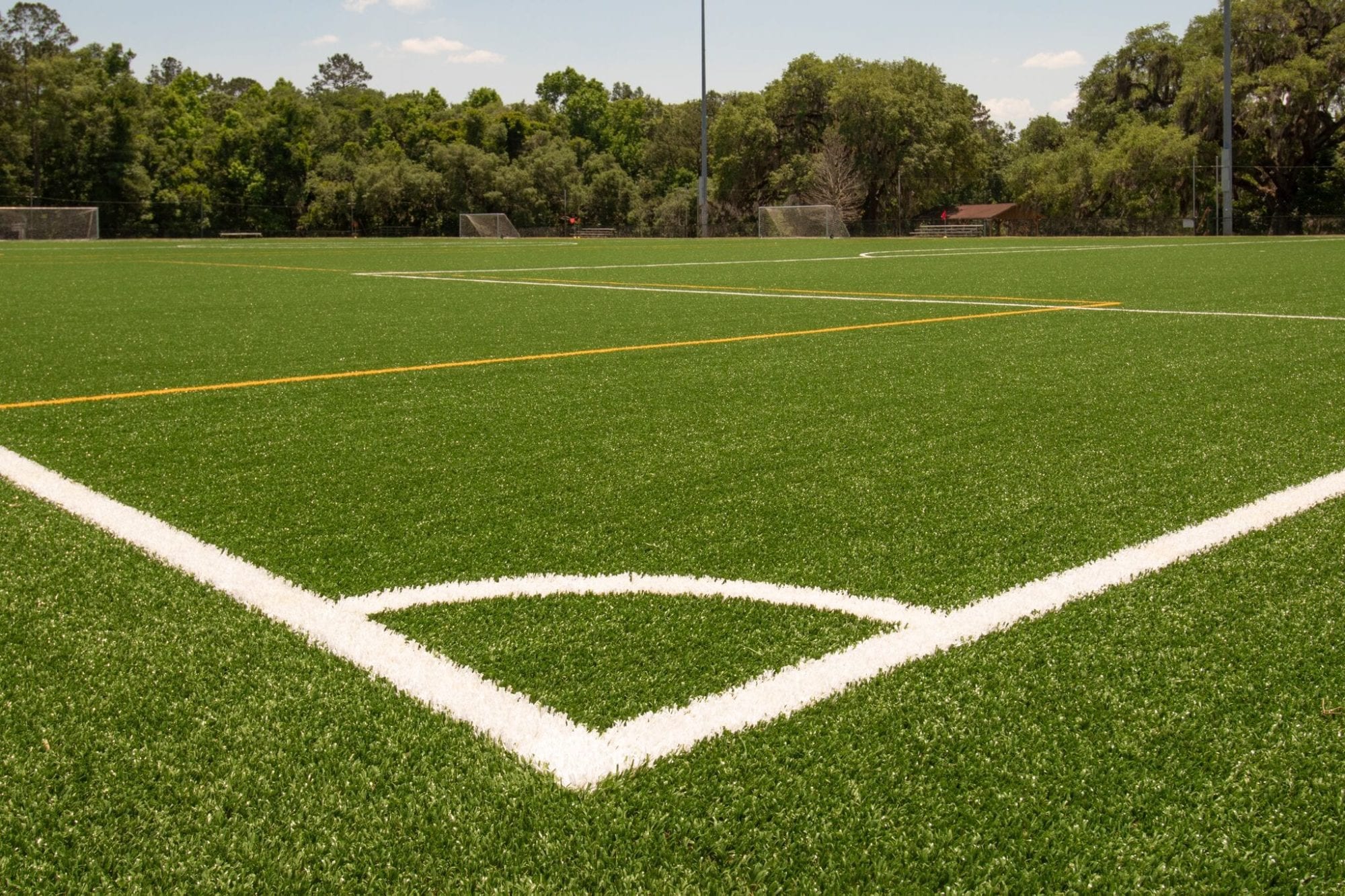Weather-Resistant Arizona Artificial Turf for Home and Business Applications
Weather-Resistant Arizona Artificial Turf for Home and Business Applications
Blog Article
Look Into the Environmental Advantages of Opting for Artificial Grass Solutions
The adoption of man-made grass services offers an engaging opportunity to deal with pushing environmental challenges. By dramatically reducing water usage and lessening the application of harmful chemicals, these choices not only promote lasting landscape design yet likewise shield local communities.
Water Preservation Advantages
One of the most considerable advantages of fabricated grass is its capacity to conserve water. In contrast, synthetic lawn does not need watering, dramatically decreasing the overall need for water resources.
By eliminating the demand for routine watering, synthetic grass adds to lasting landscape practices and assists minimize the environmental effect of excessive water intake. The preservation of water expands to the decrease of overflow, which can lead to dirt erosion and river pollution.
Additionally, the setup of synthetic grass allows property owners and communities to allot water resources more efficiently, concentrating on important usages such as drinking water and farming. The change in the direction of man-made turf not just advertises accountable water usage yet additionally straightens with broader ecological goals focused on preserving all-natural sources.
As areas significantly prioritize sustainability, the water conservation benefits of synthetic grass present an engaging case for its adoption in household and commercial landscaping tasks.
Minimized Chemical Use
The shift to synthetic grass substantially lowers the reliance on chemical therapies frequently used in natural turf upkeep. Typical lawn management generally entails the application of herbicides, plant foods, and pesticides to advertise growth and control bugs. These chemicals can posture risks to human wellness, local wildlife, and the setting, contributing to dirt and water contamination.
In contrast, synthetic grass eliminates the need for these hazardous compounds. As soon as installed, it requires very little maintenance, primarily being composed of regular cleansing and seldom infill replenishment. This reduction in chemical use not only profits the prompt atmosphere however additionally adds to broader eco-friendly security. By decreasing the launch of artificial compounds into the environment, synthetic grass promotes much healthier soil and water supply.
Furthermore, the lack of chemical runoff connected with fabricated turf setups helps safeguard neighborhood waterways from pollution, sustaining water life and maintaining biodiversity. Phoenix turf companies. As areas increasingly prioritize lasting practices, choosing synthetic lawn presents a viable remedy that lines up with ecological conservation objectives. Through this change, property owners can take pleasure in rich eco-friendly areas without endangering ecological health and wellness, paving the way for a much more sustainable future
Lower Carbon Footprint

Moreover, the installation of synthetic turf can cause significant water conservation. All-natural yards require considerable quantities of water for irrigation, which not just contributes to the carbon footprint connected with water extraction and therapy yet also pressures local water resources. In comparison, synthetic grass requires marginal maintenance, needing no watering, thus dramatically reducing official statement water use and its connected power prices.
Furthermore, the longevity of synthetic grass contributes to its lower carbon impact. With a life expectancy of as much as 15 years or even more, the need for frequent replacements is lessened, causing much less waste and lower energy intake in manufacturing and disposing of conventional yard his response alternatives. On the whole, synthetic grass offers a sustainable choice for eco mindful landscape design.
Habitat Preservation
Environment preservation is a crucial consideration in the argument over landscaping choices, particularly when contrasting man-made lawn to all-natural lawn. Natural yard yards commonly need comprehensive maintenance, including using herbicides, chemicals, and plant foods, which can detrimentally affect local ecosystems. These chemicals can leach into the soil and rivers, hurting indigenous flora and fauna and disrupting neighborhood habitats.
Fabricated turf eliminates the need for hazardous chemicals, thereby securing neighboring wildlife and keeping the honesty of surrounding environments. The installation of synthetic lawn can lead to the conversion of previous grass locations into even more biodiverse landscapes, such as pollinator yards or indigenous plant locations, which can sustain regional wild animals.
Inevitably, the shift to synthetic turf not only preserves water and minimizes upkeep initiatives yet likewise promotes a much more unified partnership in between human activities and the natural surroundings, promoting environment preservation at the same time.
Long-Term Sustainability
Long-lasting sustainability is an important consider examining the advantages of man-made turf over typical yard yards. Among one of the most considerable advantages of synthetic grass is its toughness; it can last up to 15-20 years with minimal maintenance, whereas natural grass calls for frequent reseeding and replacement. This long life lowers the demand for consistent resources, such as water, fertilizers, and pesticides, which are vital for maintaining a healthy and balanced yard lawn.
Furthermore, man-made grass contributes to a reduction in carbon emissions connected with lawn care equipment. Conventional lawns typically need gas-powered lawn mowers, trimmers, and blowers, all of which contribute to air contamination. Artificial turf companies phoenix. In contrast, artificial grass eliminates the requirement for such devices, promoting a cleaner atmosphere
Additionally, the manufacturing of synthetic grass progressively makes use of recycled products, improving its sustainability profile. As producers adopt environmentally friendly methods, the environmental impact of artificial turf continues to reduce.

Verdict
The fostering of synthetic grass remedies presents substantial environmental advantages, consisting of considerable water preservation, decreased dependence on dangerous chemicals, and a reduced carbon footprint. Fabricated grass aids in preserving natural habitats by reducing land disruption and promoting long-term sustainability via the use of durable materials. Collectively, these aspects emphasize the potential of synthetic grass to add favorably to ecological health and provide a feasible choice to traditional landscaping methods in a significantly resource-conscious globe.
In comparison, artificial grass does not require watering, substantially lowering the total need for water resources. By reducing the release of artificial compounds right into the ecosystem, synthetic turf promotes healthier dirt and water systems.
Furthermore, the installment of synthetic turf can result in substantial water preservation. In contrast, fabricated turf requires very little upkeep, needing no watering, thus considerably lowering water use and its connected power expenses.

Report this page